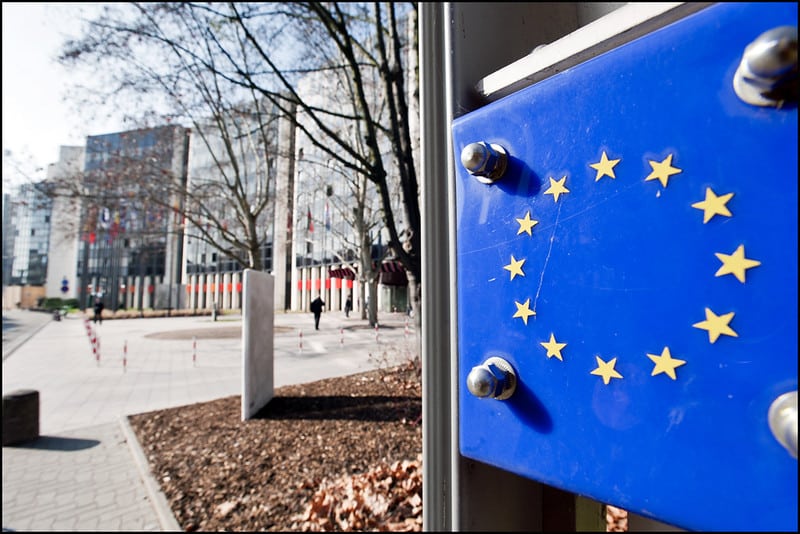European Parliament in Strasbourg, France (Flickr)
After years of process and a reversal of Europe’s efforts to integrate the Western Balkans into the EU, Bosnia and Herzegovina is the next country to take a step towards EU membership. At the same time, Kosovo is also trying to take such a step, albeit not without a struggle. Two milestones for both countries in the long EU accession process, although major obstacles remain.
EU grants Bosnia candidate status
After the European Commission recommended candidate membership back in Oct 2022, the time has really come. Bosnia and Herzegovina (BiH) was granted candidate status by EU member states on 13 December. According to Bosnian Foreign Minister Bisera Turković, candidate status is an important and necessary step for the country. Among other things, the newly acquired status allows BiH to claim new funds and investments, as this step underlines the country’s progress. These new prospects present opportunities for investors, Turković said: “Economically, investors from all over the world will find in Bosnia … see a clear positive side and opportunity for progress.”
Candidate membership brings the country closer to the EU. However, BiH still has a long way to go to reach the next stage of the accession process. For instance, the country suffers from major tensions fueled by ethnic divisions. The last elections in October 2022 had put Europe on edge, with escalation especially feared. To date, things remain relatively calm. In 2019, the European Commission had identified 14 key priorities to give BiH candidate status. However, these have not been adequately addressed due to further fragmentation in society and politics, where nationalist parties are diametrically opposed.
Granting the EU candidate status to BiH is in line with the new European approach towards EU enlargements of the Western Balkans. The war in Ukraine and the growing geopolitical influence of China and Russia have pushed the EU to rethink its commitment to expansion of the EU. Now that BiH has been granted the candidate status, it is one step closer to integration within the EU. This is despite the acknowledgement that key issues will need to be addressed before it can proceed to the negotiation phase, in which North Macedonia and Albania joined Serbia and Montenegro in the summer of 2022. It showcases that after years of stagnation, moves are being made by both aspiring countries and the EU.
Kosovo applies for EU membership
In the same week that Bosnia and Herzegovina was awarded candidate membership, Kosovo also made its ambitions to be part of the EU crystal clear. Prime Minister Albin Kurti said in a government meeting, “The European Union is a place of peace, security, equality and prosperity and that’s why the Republic of Kosovo’s place is in this joint house as a country that loves peace.” He turned his words into actions on 14 December, when Kosovo applied for EU membership. However, Kosovo faces many obstacles on the route to accession, the most important of which is the deteriorating relationship with neighbouring Serbia. The normalisation of relations between the two countries is a rock-solid condition for the future EU accession of both Kosovo and Serbia. Still, it is further away than before due to various disputes. Hence, it is expected that the current political crisis and non-recognition of Kosovo by some EU-member states will considerably delay the EU accession process of Kosovo.
EU can benefit from togetherness and decisiveness
For both the EU and the Western Balkans, integration of the entire region into the EU is an absolute necessity. A returning topic in the political debate is that peace and stability in the Western Balkans and inclusion in the political and economic frameworks of the European continent are essential for a stable future of Europe as a whole. These milestones in Kosovo and BiH are steps towards such inclusion, but at the same time, many obstacles remain for both countries. For Bosnia, the main issue is to reduce ethnic tensions in the country and to get rid of voting along ethnic lines. For Kosovo, the biggest challenge is the normalisation of relations with Serbia.
Author: Mathieu Neelen
Sources: AlJazeera, BalkanInsight1, BalkanInsight2, BNE, CarnegieEurope1, CarnegieEurope2, CarnegieEurope3, Euractiv, Euronews, EuropeanWesternBalkans, NU.NL, RadioFreeEurope1, RadioFreeEurope2, RFI
Photo: Flickr



